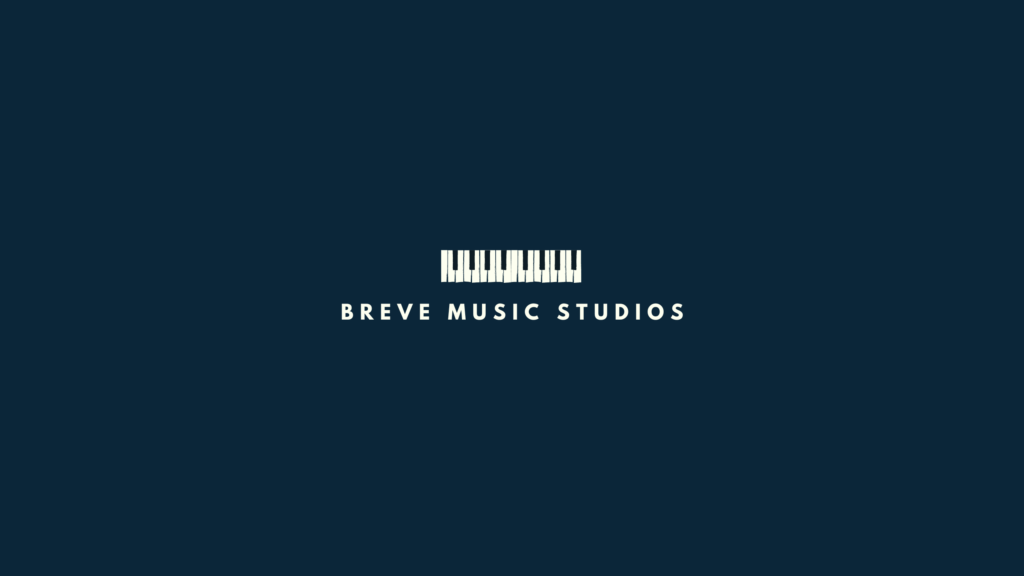Table of Contents
Introduction To Music Industry Jobs
Beginning a career in the potentially glamorous sphere of the music industry is undoubtedly thrilling, but it often requires more than just raw talent and passion. Finding a music industry job demands a comprehensive understanding of the industry’s inner workings, robust networking, effective personal branding, and expertise in specific areas. With the right guide and a focused approach, you can decidedly carve a path towards a successful career in the exciting realm of music.
This piece aims to provide an insight into critical aspects like understanding the industry, networking, personal branding, and acquiring specialized skills, equipping you with essential aids to navigate your career journey in the music industry.
Understanding the Music Industry
Its Players and Roles
To prepare yourself for a career in the music industry, a comprehensive understanding of the field is mandatory. This sector hosts an array of roles, from recording artists to public relations executives, concert promoters, music teachers, and record label executives. Each role comes with distinct responsibilities and contributes to the overall functioning of the industry.
Discovering these roles and perhaps identifying one or two that you find interesting is an excellent starting point. Learning about current trends and industry dynamics will not only advise your career choice but let prospective employers know you are up-to-date and passionate.
The Power of Networking in the Music Industry
The music industry is known for its strong community. Therefore, building connections can jumpstart your career. Attend industry events, be active on social media, and actively participate in online communities to increase your visibility and grow your network.
Networking opens up opportunities for internships, mentorships, or even job offers. Remember that it is important to nurture your professional relationships. Regularly keep in touch with your contacts and offer your help when they need it.
Creating a Strong Resume and Portfolio
A targeted, well-crafted resume is your ticket to the music industry. Highlight any experience you have in the field, whether it’s a part-time job, an internship, or even a school project. Don’t forget to include any relevant coursework or academic achievements.
Similarly, an impressive portfolio can set you apart. Maintain samples of your work, completed projects, or even positive feedback from past clients or managers. Showcasing proven skills and expertise can provide employers with a glimpse of what you bring to the table.
Honing Skills and Gaining Relevant Experience
Even if you’re just starting out, you can gain relevant experience through internships or volunteer work. Not only will this give you the practical skills required for the job, but it also shows your initiative and dedication to prospective employers.
Additionally, continuing to learn and grow in the field is crucial. Whether it’s enrolling in a relevant course, self-study, or practice, staying on top of industry trends and developments can give you an edge against competition.
The Power of Perseverance in the Music Industry
Finding a job in the music industry isn’t always straightforward. You might face rejection and competition. But don’t let that deter you. Stay committed to your goal, keep improving your skills, and seize every opportunity that comes your way.
Remember, everyone starts somewhere. Some of the most successful people in the industry have stories of struggle in their early days. Perseverance and resilience can turn a career dream into a reality.

Networking
Setting the Stage: Navigating the Music Industry’s Complex Landscape
The contemporary music industry—with its myriad of record labels, streaming platforms, live event companies, artist management agencies, and music tech firms—can appear overwhelmingly intricate to industry outsiders looking to break in. Yet, those driven by a passion for music and an ambition to thrive within its dynamic ecosystem can leverage the power of networking to advance their careers. Here’s how to utilize networking to discover job opportunities in the industry, impress professionals, and solidify your professional image.
Step 1: Crafting a Stellar Online Presence
In the digital era, your online persona is your business card. It narrates your personal story and professional background before you even have a chance to speak. Begin by refining your LinkedIn profile—make it concise, comprehensive, and compelling, highlighting your skills, experiences, and ambitions within the music industry. Additionally, leverage other social platforms like Twitter, Instagram, Facebook, and TikTok to showcase your personal connection to music and your industry insights. Remember, maintaining a professional demeanor across these platforms is imperative – employers often scout potential candidates online before making hiring decisions.
Step 2: Attending Industry Events
Industry events are hotspots for networking opportunities. From music festivals to industry conferences and award shows, these gatherings host a diverse array of professionals from different sectors of the industry. Prepare an elevator pitch—a succinct, persuasive speech highlighting your qualifications, interests, and career aspirations—and be ready to mingle and engage in discussions. It’s an excellent opportunity to make meaningful connections, learn industry insights, and even discover unadvertised job openings.
Step 3: Approaching Industry Professionals
Initiating conversations with industry professionals can be daunting, especially for newcomers. But remember, everyone has been in your place at some point. Approach professionals with respect and openness, showing genuine interest in their work and the industry. Ask thoughtful questions, express your career aspirations, and discuss your favorite music and industry trends. During conversations, treat it as a learning opportunity rather than a job-seeking endeavor.
Step 4: Follow-up and Maintain Relationships
Networking doesn’t end with the first meeting. Like any relationship, it requires nurturing. Follow-up with those you meet with a personalized message on LinkedIn or an email, expressing your gratitude for their time and mentioning something specific from your conversation. Keep these relationships warm by periodically checking in and sharing any relevant updates about your career or interests. This way, when job opportunities arise, these contacts might think of you.
Step 5: Dealing with Rejection
Rejection is an inevitable part of job hunting in any industry, not just music. Rather than seeing failure as a sign to quit, view it as a chance to learn, grow, and optimize. If an application isn’t successful, reach out to the employer or your contact person for constructive feedback. This will not only show your determination to improve but also reinforce your initial connection.
In the end, no job hunting strategy is foolproof. But with a robust online presence, a pro-active approach at events, a respectful demeanor towards industry professionals, consistent follow-ups, and an optimistic attitude in the face of rejection, you can improve your chances of landing your desired job in the music industry.

Photo by pabloheimplatz on Unsplash
Personal Branding
Personal Branding: The Reality of the Music Industry
The music industry offers innumerable opportunities, but navigating it demands a good knowledge of your craft, robust connections, and, most importantly, understanding how to market yourself.
Crafting a Standout Resume
Think of your resume as a crisp brochure about yourself. You should underline your key strengths, areas of specialization, internship experiences, or any previous work that is relevant to the music industry. Don’t clutter it with irrelevant information, let it breathe, and make it visually appealing. Use bullet points to highlight essential details. Most importantly, use industry-specific keywords as HR departments often use Applicant Tracking Systems which filter resumes based on these keywords. For example, terms such as ‘music production’, ‘sound design’, ‘songwriting’, ‘music marketing’ could enhance your visibility to those hiring in the music industry.
Creating a Compelling Cover Letter
Unlike a resume, a cover letter is a place where you can let your personality shine. Start with a personal introduction, explaining your passion for music and why you want to work in the industry. Then, elaborate on experiences or projects that have equipped you with the necessary skills for the job you’re applying for. Finally, end by expressing your interest in being a part of their team. Even if you apply for a multitude of jobs, always personalize your cover letter for each employer.
Conducting a Successful Interview
Interviews can be nerve-wracking, but the key tip here is to stay calm and confident. You’ve made it this far based on your resume and cover letter – now’s the time to put a voice to that. Research about the job role and the company thoroughly, be prepared to share examples of when you’ve utilized your skills in the past, and do not forget to ask thoughtful questions. Your interest in the job should be evident not just in your answers, but also in the questions you ask. But most importantly, be genuine and show them your passion for music.
Maintaining an Online Portfolio
An online portfolio showcasing your work can set you apart from the competition. Use it to highlight your core skills, whether they be composition, sound design, live performance, or production. Link to samples of your work. It could be songs you’ve written and recorded, promotional campaigns for musical artists you’ve managed, or concerts you’ve produced. Include testimonials from people you’ve worked with – direct quotes about your work ethic and skills can go a long way to impress potential employers. Keep it updated and make it easily accessible for potential employers.
Conclusion
To get your foot in the door of the music industry, it is crucial to build a robust personal brand. This can only be achieved through well-articulated resumes and cover letters, successful interviews, and a compelling online portfolio. Remember, your passion for music should shine through every step of the way.

Learning Specific Skills
Understanding The Music Industry Landscape
The first thing to understand about the music industry is that it is vast and diverse. This means that there are many different job opportunities available, each requiring unique skills. These might be technical, creative, or business-focused. Understanding which area you’re interested in will help you focus your learning and job seeking efforts.
Identifying The Essential Skills
Depending on the area of the music industry you wish to be involved in, identify the essential skills you need to have. If you’re interested in the artistic side, this could be writing, performing, producing, or arranging music. If you’re more interested in the business aspect, skills in management, marketing, law, or finance might be more pertinent. Look at job descriptions and industry professionals to get a sense of the skills required.
Dedicate Time To Learn and Practice
Whether it’s learning an instrument, understanding music theory, studying contract law for the music business, or understanding digital marketing strategies for artists and labels, you’ll need to take time to actively learn new things. Depending on your resources, this might be through formal education, online courses, self-study, or hands-on, experiential learning.
Make Use of Music Industry Resources
Numerous resources are available to help musicians and music industry professionals learn about the business. Use these to expand your knowledge and stay up-to-date with industry trends. This can include websites, blogs, online forums, books, magazines, podcasts and industry events.
Building a Network
In addition to learning and acquiring skills, networking is an invaluable part of finding a job in the music industry. Attend industry events, join music business groups, and reach out to industry professionals. Remember to be genuine and offer value in return. It’s not just about what others can do for you, but also what you can do for them.
Conclusion
Finding a job in the music industry involves identifying the skills you need for your desired role, dedicating time to learn those skills, using industry resources, and networking. Each of these elements can contribute to making you a more desirable candidate to potential employers.

Embarking on a career in the dynamic music industry requires more than just an innate passion for music. It requires persistent efforts imbued with a thorough understanding of how the industry operates, effective networking techniques, building a compelling personal brand, and acquiring specialized skills. These key steps, when conscientiously followed, can make your journey of breaking into the music industry smoother and more rewarding. As you anticipate stepping into the music world, these tips will become your torchbearer, leading you towards a bright and fulfilling career.
Additional Reading
Now that you’ve learned about music industry jobs, take some time to check out our other articles:
- Top Compressor Plugins for Subtle Dynamic Control
- How to Set Compressor Parameters for Punchy Drums
- Vintage vs Modern Compressor Plugins: Which Is Right for Your Music?
- How to Avoid Over-compression Using Your Favorite Plugins
- Review: the Most Versatile Compressor Plugins for Any Genre
Breve Music Studios publishes music to Spotify, YouTube Music, Amazon Music and more. Follow our pages on Facebook, Instagram, Twitter, TikTok, and YouTube.
Listen to our ensembles: Breve Orchestra, Breve Music Ensemble, Breve Low Brass Ensemble, Breve Woodwind Ensemble, and Jermaine Harris on Spotify.
